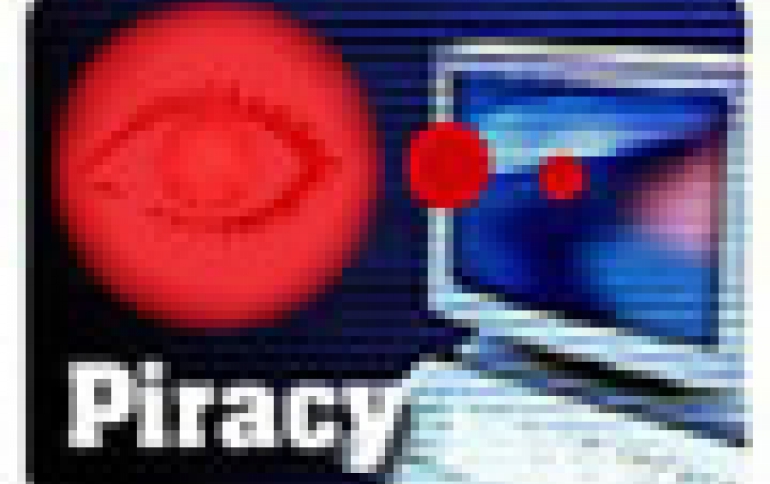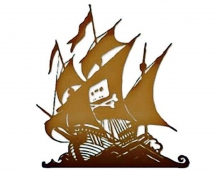
CCI To Dealy 'Six-strike' Anti-piracy Campaign Until 2013
The controversial "six strikes" copyright enforcement plan that aims to curb illegal downloads and peer-to-peer file-sharing has been postponed until 2013.
The Center for Copyright Information -- a venture between ISPs, music labels, and film studios to crackdown on illegal downloads -- announced today that because of damage from Hurricane Sandy the organization's alert system will not begin until next year.
Jill Lesser, the executive director of the Center for Copyright Information, which is in charge of the copyright warning system, announced today that because of damage from Hurricane Sandy the organization's alert system will not begin until next year.
"Due to unexpected factors largely stemming from Hurricane Sandy which have seriously affected our final testing schedules, CCI anticipates that the participating ISPs will begin sending alerts under the Copyright Alert System in the early part of 2013, rather than by the end of the year," CCI executive director Jill Lesser said.
"Our goal has always been to implement the program in a manner that educates consumers about copyright and peer-to-peer networks, encourages the use of legal alternatives, safeguards customer privacy, and provides an easy-to-use independent review program for consumers to challenge alerts they believe they've received in error," she added.
CCI is a joint venture between Hollywood copyright holders and Internet Service Providers that was created in April. AT&T, Cablevision, Verizon, Time Warner Cable, and Comcast are the participating ISP members in the venture. The organization claims that its goal is to educate and crack down on people downloading content protected by intellectual copyright.
Under the proposed scheme or the "Copyright Alert System" (CAS), entertainment companies will notify ISPs that a customer has allegedly been pirating movies or TV shows illegally. The bandwidth provider will then send a notice intended to educate the customer about the consequences of downloading unauthorized content. If the notice campaign fails, more punitive measures may be introduced. These include bandwidth throttling, pop-up warnings and restricted browsing, so that repeated infringers trying to access certain websites will be redirected to an educational page.
CAS has received criticism by organizations including the Electronic Frontier Foundation (EFF), although CCI declares committed to respecting the privacy rights of subscribers.
The Copyright Alert System says that it will not require the ISP to terminate an Internet subscriber's account.
Jill Lesser, the executive director of the Center for Copyright Information, which is in charge of the copyright warning system, announced today that because of damage from Hurricane Sandy the organization's alert system will not begin until next year.
"Due to unexpected factors largely stemming from Hurricane Sandy which have seriously affected our final testing schedules, CCI anticipates that the participating ISPs will begin sending alerts under the Copyright Alert System in the early part of 2013, rather than by the end of the year," CCI executive director Jill Lesser said.
"Our goal has always been to implement the program in a manner that educates consumers about copyright and peer-to-peer networks, encourages the use of legal alternatives, safeguards customer privacy, and provides an easy-to-use independent review program for consumers to challenge alerts they believe they've received in error," she added.
CCI is a joint venture between Hollywood copyright holders and Internet Service Providers that was created in April. AT&T, Cablevision, Verizon, Time Warner Cable, and Comcast are the participating ISP members in the venture. The organization claims that its goal is to educate and crack down on people downloading content protected by intellectual copyright.
Under the proposed scheme or the "Copyright Alert System" (CAS), entertainment companies will notify ISPs that a customer has allegedly been pirating movies or TV shows illegally. The bandwidth provider will then send a notice intended to educate the customer about the consequences of downloading unauthorized content. If the notice campaign fails, more punitive measures may be introduced. These include bandwidth throttling, pop-up warnings and restricted browsing, so that repeated infringers trying to access certain websites will be redirected to an educational page.
CAS has received criticism by organizations including the Electronic Frontier Foundation (EFF), although CCI declares committed to respecting the privacy rights of subscribers.
The Copyright Alert System says that it will not require the ISP to terminate an Internet subscriber's account.





















